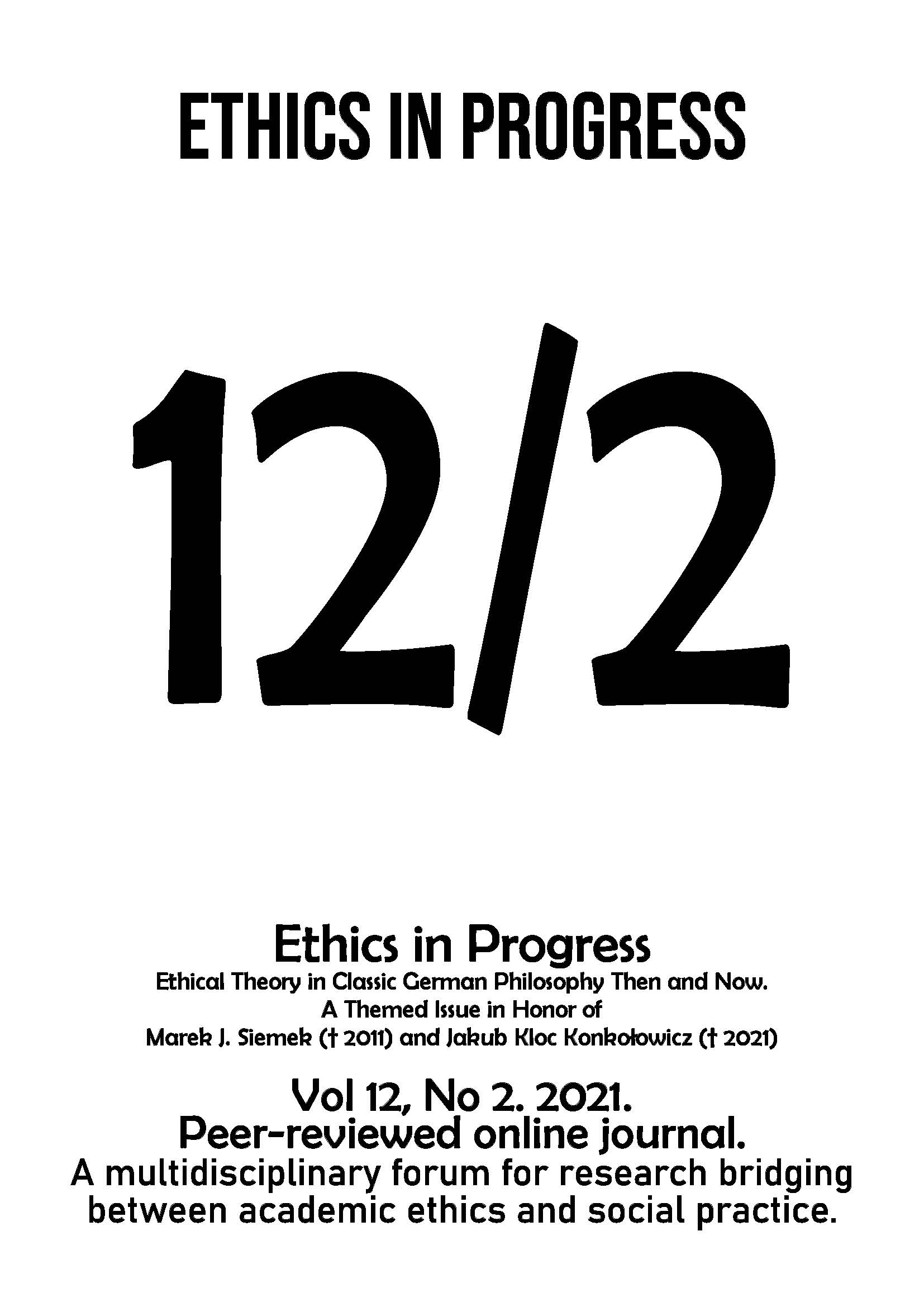Self-determination and “the Right to Specificity”. Concerning Hegel’s Theory of Modern Freedom
Self-determination and “the Right to Specificity”. Concerning Hegel’s Theory of Modern Freedom
Author(s): Erzsébet RózsaSubject(s): History of Philosophy, Philosophical Traditions, Special Branches of Philosophy
Published by: Uniwersytet Adama Mickiewicza
Keywords: Hegel; subjectivity; freedom; self-determination; modernity; the right to specificity; morality
Summary/Abstract: In this paper, it will be shown that Hegel’s philosophical thematisation of subjective freedom has given a fundamental contribution to the historical innovation of modernity, which regards not only human rights, but also norms and values. Besides, it played an important role concerning the cultural transformation, i.e., the process of the realization of the historical innovation oriented towards the ideals of modern freedom. To show this, the author will focus on some passages from Hegel’s Philosophy of Right of 1820, in which Hegel regarded subjective freedom as universally-normative and, at the same time, as socially and historically contextualized (situated, respectively). Hegel, namely, explicates modern freedom in its ideality and moral normativity, addressing its realization in particular forms of life. Marriage, for instance, as it will be shown towards the end of this contribution, exemplified as the right to particularity, is the normative basis of modern subjective freedom. Tensions and collisions will permanently challenge this type of freedom and also require permanent (and self-defeating) efforts invested in striving for a (too contextualized and situated) „reconciliation“ (in Hegel´s terms Versöhnung).
Journal: Ethics in Progress
- Issue Year: 12/2021
- Issue No: 2
- Page Range: 78-88
- Page Count: 11
- Language: English

